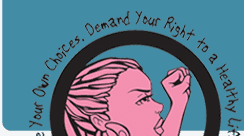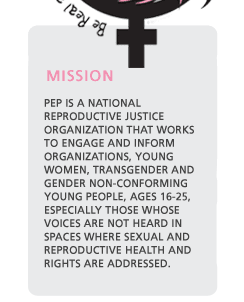Q. What is HIV?
A. HIV stands for "Human Immunodeficiency Virus". This is a virus can be passed from one person to another through infected blood, semen, or vaginal fluid that come in contact with an uninfected person's broken skin or fluid in the mouth, eyes, nose, vagina, rectum, and opening of the penis. Someone who is diagnosed as infected with HIV is said to be HIV positive. Someone who does not have HIV is said to be HIV negative. HIV can turn into AIDS if your immune system becomes seriously damaged.
Q. What is AIDS? What's the difference between HIV and AIDS?
A. AIDS stands for AIDS for "Acquired Immunodeficiency Syndrome". AIDS is the progressions of HIV. Acquired means you can become affected with it; Immunodeficiency means there is a weakness in the body that keeps it from fighting off diseases; and Syndrome means a group of health problems that make up a disease. A person is said to have AIDS when they are infected with HIV and have one of a number of severe illnesses (often called "opportunistic infections"). This means that people with AIDS can get many different kinds of diseases which an otherwise healthy person's body would typically be able to fight off quite easily.
Q. How long does it take for HIV to become AIDS?
A. Most people can live a long, healthy life with HIV if they are seeking treatment from a doctor and receiving medications to slow the HIV down from progressing into AIDS.Without treatment, HIV infection usually progresses to AIDS in an average of 7-10 years. This average varies from person to person.
Q. Why are women more at risk for contracting HIV/AIDS?
A. During heterosexual sex, women are about twice as likely to become infected with HIV from men as men are from women. One of the reasons for this is the high chance of women being exposed to infected semen, particularly during non-consensual or unprotected sex. Women suffer from the same complications of AIDS as men, but also suffer from complications that are female-specific such as vaginal yeast infections, severe pelvic inflammatory disease (PID) and an increased risk of precancerous changes in the cervix which may lead to increase risk of cervical cancer. Women also exhibit different characteristics from men for many of the same complications of antiretroviral therapy, such as metabolic abnormalities. Frequently, women with HIV have great difficulty getting health care and carry a heavy burden of caring for children and other family members (who may also be HIV-infected). They may lack social support and face other challenges that may interfere with their ability to get or stick to treatment.
Q. Can I get HIV from oral sex?
A. People who have contracted HIV were primarily infected through vaginal/anal sex, at birth, or from using infected drug needles. Although contracting HIV through unprotected oral sex is low-risk, there is an increased risk if a man or woman has sores in his/her mouth or if the partner has sores on his/her thighs/genitals or if a woman is having her period.
Q. How often should someone get a HIV test?
A. People should get tested every 3-6 months but make sure that they are using protection in between getting tested and the waiting period for receiving results.
Q. How is HIV treated? How is AIDS treated?
A.There are now many treatments that can help people with HIV. Because of the various treatments, many HIV positive persons are living much longer and healthier lives than before. There are medicines now that can slow the growth of the virus or stop it from multiplying in the body. Unfortunately, these drugs are not able kill the virus; however, they do keep the amount of virus in the blood low.
As for AIDS, there are many treatments designed to either slow the growth of AIDS and also improve the quality of life for an AIDS patient, such as counseling.
Q. What's the deal with the AIDS vaccine?
A. Scientists and health professionals are currently working on developing a vaccine that will prevent people from being infected with HIV. There is no available vaccine yet, as labs are conducting clinical trials to develop a safe and effective vaccine as well as recruit volunteers to participate in clinical trials.
A huge misconception many people have is that the HIV vaccine will cause HIV. This is NOT TRUE. Also, there will not be any HIV in the vaccine.
Q. Who gets AIDS?
A. Anyone can contract HIV, and it can progress to AIDS. HIV/AIDS does not care about a person's gender, race, sexual orientation, age, or how much money they make. | 





